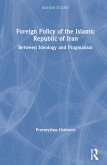Iran had witnessed enormous historical development; these developments had resulted in creating a widely diversified society in terms of religious views, ethnicities, and linguistic communities. The first national project, however, had failed to emulate the Western model of the modern state, thus Iran was unable to complete its national project, especially after the rise of the Islamic Revolution. On the other hand, the post-revolution Iranian constitution is based on religious interpretations of Islam (Jaafari / Twelfth Shiaa). Although Iran's policy towards minorities varies according to the differences in the political wings in office (reformists and conservatives), international reports indicate that the general policy of the Iranian state tends to be arbitrary and might develop into violence and retaliation actions due to linking minority societies into fears of regional rivalry /international threats. This Book aims to shed light on the minorities policies in Iran.








